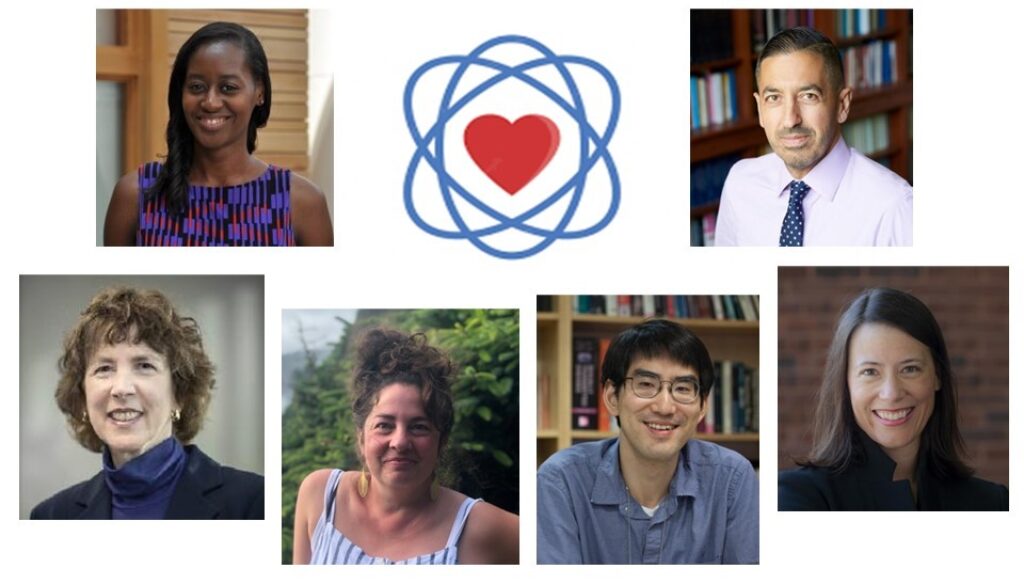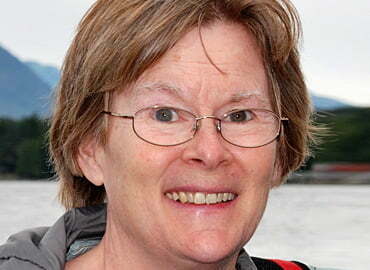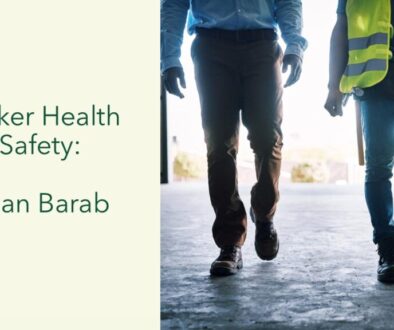Values and Science: Views from Our Community
Christine BachrachIn order to find out how IAPHS members think and feel about values and science, the lead author interviewed six people, selected to represent diversity with respect to career stage, discipline, gender, and race and ethnicity. The goal was to identify a range of views: What follows can’t be said to represent the views of IAPHS members in any scientific way. Hopefully, it provides food for thought.
This Blog post introduces the interviewees and their views on the relationship between values and science as well as the implications for how individual scientists carry out their work. As you will see, there’s a lot of agreement on these topics. Towards the end of this series, we’ll revisit the interviewees, asking how they feel the predominance of liberal worldviews among population health scientists affects our field. As previewed in the first post of the series, views on that topic differ quite markedly.
All the informants agreed that values play a centrally important role in driving their science — including the questions they ask and those they don’t ask. They agreed that once they ask a question, their research needs to be insulated from any biases they might have about what they’d like the answer to be. They all emphasized honesty and integrity in reporting findings.
Six Perspectives on Values and Science
Merlin Chowkwanyun is a historian in a school of public health. He reports having very strong political leanings in his civic life (Civic Merlin), but also an equally strong belief that his academic work (Academic Merlin) should be separate. “My first mission when I am … engaging in scholarship or research is not to just find things that affirm Civic Merlin’s point of view, it’s to take a question and answer it in the most rigorous way I can. . . . It’s not bad for scientists to understand [that the] very questions you ask are a reflection of values, as are the questions you don’t ask, the methods you pick, the data sources you choose . . . the voices you think are most important, levels of society you think have influence and deserve more study. . . . The more aware you are, the less susceptible you are to charlatanry and to doing methodological things to cut corners and things like that. But, if you’re honest about it I think you can try to achieve what the value-free stance is trying to achieve, to get the best, most rigorous analysis of how society works.”
Brooke Staley is a new PhD in epidemiology who is headed for a job in the CDC Epidemic Intelligence Service. With a background in neuroscience, she was drawn to population health through a job researching the effects of racism on health. “To me, at the time, it was . . . very powerful, it was introducing me to the idea of research as a way of advocacy, of activism.” Brooke emphasizes the power of subjectivity in research. Although “the idea of objective research is really drilled into people early on, it’s difficult. We as individuals are making a lot of assumptions that don’t make it into the paper. The idea that the numbers are just what they are and there’s only one way to interpret that — then how is it that one person can come up with one story and another a quite different story?” Brooke believes that positionality statements should be more widely used: “It provides you the space to tell a little bit about who you are, how you think, how your advantage has informed your thought process, and that can help people situate your research in a way that makes sense.” She is also a strong believer in community-engaged research, noting that scientist-only teams often fail to address the priorities of marginalized communities.
Sandro Galea is Dean of the Boston University School of Public Health and an epidemiologist who publishes widely on the social causes of health, mental health, and trauma. He says, “What we do is a combination of our values and our science, and . . . that’s perfectly fine. We should be clear about what our values are and why they are what they are and recognize that those values do inform both our science and how we translate that science. We need to be clear about why we need to understand and be transparent about the questions we’re asking, but when we do ask those questions we need to be honest about our findings.”
Lindsey Leininger is a public policy researcher who works in a business school, and she brings past experience in a school of public health and a private think tank. Lindsey cites work in psychology to underscore how important cognitive biases arising out of our political leanings can be in influencing our science. She says, “That’s not a normative failing, it’s just that we’re human. I think if we think we’re above that, we’re wrong. . . .The best antidote to that is to check your biases, and to rigorously interrogate your views.” On whether scientists should engage in advocacy, she says, “I’ve been in two different worlds. . . . In public health schools people are advocates and they see that as their job. . . .I’m totally OK with people taking that position, but it’s anathema to me and my intellectual traditions.”
Sanne Magnan is a physician, scientist, and former Minnesota commissioner of health who has addressed the drivers of health through the redesign of health care, redesign of incentives, and citizen and community engagement. She believes that “we have to continue to let our values propel us to do what we can.” Her values, rooted in faith, drive her work to advocate against wasteful medical spending (which can deter spending on other drivers of health) and, recently, to foster understanding between pro-choice and pro-life people. She says it’s important that we “be able to challenge each other — ‘tell me more about your thinking’ — not as a debate but as a discussion seeking understanding. And I need to say why I am thinking a certain way — a cogent response to the science and to my values. Disagreements are learning opportunities.”
Megan Reynolds is a sociologist who studies the relationships among health and illness, inequalities, and politics and policy. Reflecting on how values affect science, she says, “Whether we study something at all . . . is largely determined by considerations of what deserves studying. And we often deem the things that deserve studying, the things that we think need changing. . . .we see research as an avenue for change. If we understand the causes of something or the preconditions of it, maybe we can manipulate them so we can bring about a more desirable outcome. And the operative word here is desirable — we desire for something to look different, and what you desire is inextricably linked with your values.” At the same time, Megan draws a sharp “distinction between what we choose to study and how we study it.” Research integrity is very important to her, and without it, research can be biased. However, she adds, “If we’re all transparent about how our meanings influence the questions we ask and if we all adopt these basic principles of research integrity, we shouldn’t need to worry about it — that can all be sort of factored in.”
As suggested above, the six informants shared a deep appreciation for the role that values play in the conduct of science and a commitment to research integrity. Beyond this, however, they expressed somewhat different ideas about how they navigate the nexus of values and science. Two main lessons emerged: One is being transparent about the values and positions one brings to research, to provide readers with a context for understanding one’s approach and findings. The other is interrogating the role of values in one’s own or colleagues’ research to minimize potential biases. We’ll explore these themes further in future posts.
Many thanks to all six informants for sharing their time and thoughts. In our next post, we’ll explore the many ways in which our personal values and positions can affect our scientific work, including the issues we choose to study; the theories, data, measures and concepts we use; and the myriad decisions made as a research project unfolds. We’ll provide examples of the influence of positionality on past research and ask, “What can we do?”
Please comment! You can access the comment box by signing into the IAPHS website here. Once you’re signed in, scroll down below this post to find the comment box. If you’re inspired, you can enrich the conversation by posting your thoughts as a separate post: Contact Blog Editor Jarron Saint Onge, jsaintonge@ku.edu.
About the Authors
Christine Bachrach is Senior Advisor to IAPHS and the organizer of this series. She accepts full responsibility for its content as a representation of the authors’ thoughts and opinions and not necessarily the opinion of IAPHS as an organization. Many thanks to the six individuals who agreed to share their perspectives with this Blog series.
Project advisors: Yukiko Asada, Caryn Bell, Erika Blacksher, Marino Bruce, Merlin Chowkwanyun, Cynthia Colen, Jen Cruz, Jenn Dowd, Kaori Fujishiro, Taylor Hargrove, Kathie Harris, Mark Hayward, Jennifer Karas Montez, Nicholas King, Lindsey Leininger, Sanne Magnan, Jarron Saint Onge, Kat Theall, Alex Tsai, and Anna Zajacova.






All comments will be reviewed and posted if substantive and of general interest to IAPHS readers.